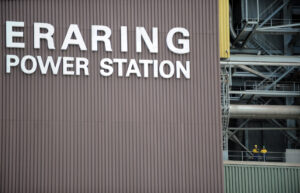The RBA is currently targeting a 4.5% unemployment rate, and that is going to hurt young, low skilled and low paid workers,
The next 12 months ahead look to be a time of rising wages, and rising unemployment. The Reserve Bank is trying to raise unemployment in order to prevent rising wages. It’s target of 4.5% will see around 130,000 to 150,000 more people unemployed than is currently the case.
Labour market policy director, Greg Jericho, in his Guardian Australia column, examines which workers are likely to be the ones who will lose their jobs.
In a bitterly ironic point, he notes that these are the same workers whom Deputy Governor of the Reserve Bank Michele Bullock recently boasted were the ones who had gained the most from the strong employment growth of the past 18 months:
people on lower incomes and with less education who have benefited the most from the strong labour market conditions
More worrying is that the Reserve Bank’s own estimates suggest that the rises in unemployment over the next year will see Australia breach the “sahm Rule” of recession, in which the unemployment rate rises more than 05%pts in a year. Oddly however the RBA’s correspondence on the issue revealed in an FOI disclosure has them suggesting that for Australia the recession trigger is a 0.75% rise.
Either way, history suggests that when unemployment rises in a year by the amount the RBA is estimating it usually keeps rising.
The RBA’s own estimates show just how close to a recession the economy is set to go in the next year. It already looks likely to hit workers with low skills and low paid jobs, and if the RBA gets it wrong, it will quickly hit many more of society.
You might also like
A smooth move or a tough transition? Protecting workers who’ll lose their jobs when the Eraring Power Station closes
The Centre for Future Work at The Australia Institute has urged the federal government to take charge of transitioning hundreds of workers into secure employment when the Eraring Power Station shuts down.
Dutton’s nuclear push will cost renewable jobs
Dutton’s nuclear push will cost renewable jobs As Australia’s federal election campaign has finally begun, opposition leader Peter Dutton’s proposal to spend hundreds of billions in public money to build seven nuclear power plants across the country has been carefully scrutinized. The technological unfeasibility, staggering cost, and scant detail of the Coalition’s nuclear proposal have
Want to lift workers’ productivity? Let’s start with their bosses
Business representatives sit down today with government and others to talk about productivity. Who, according to those business representatives, will need to change the way they do things?



